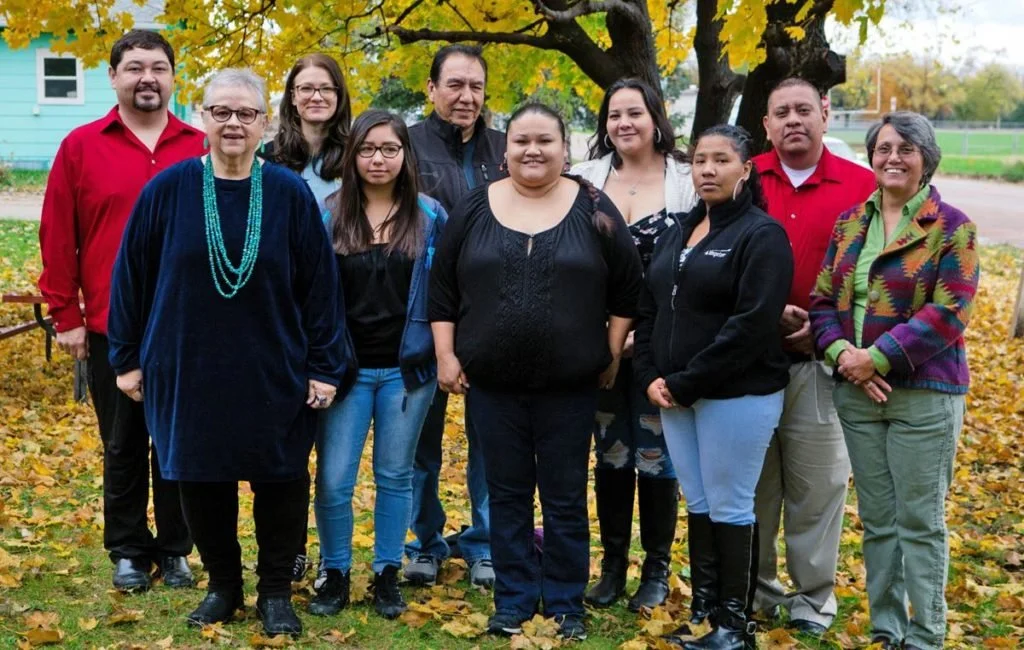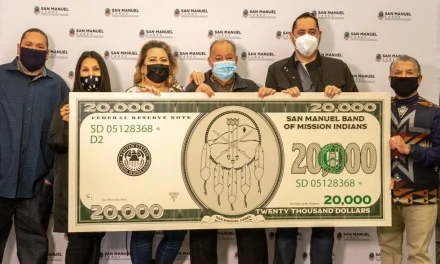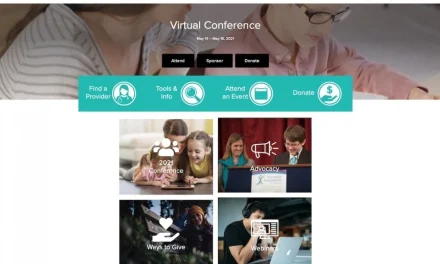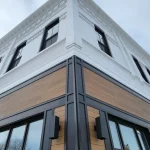The Northwest Indian Community Development Center recently received a 2018 Bush Prize for Community Innovation award and a $500,000 grant from the Bush Foundation. (NWICDC)
Out of 110 applications received this year, six 2018 Bush Prize for Community Innovation winners were chosen from the three states the St. Paul-based nonprofit serves: Minnesota, North Dakota and South Dakota, including the 23 Native nations that share the same geography.Two of those six winners were Native American organizations. The Northwest Indian Community Development Center received the maximum grant of $500,000 through the Bush Prize for Community Innovation, and the Native American Community Board received $182,000 in Bush Prize award money. The Bush Prize for Community Innovation celebrates organizations with a track record of successful community problem solving.Northwest Indian Community Development CenterThe Northwest Indian Community Development Center’s (NWICDC) workforce development programs and innovative social enterprises create jobs while promoting self-actualization and choice—key elements in what NWICDC defines as a healthy life.A development center designed to address economic disparities in the Bemidji, Minnesota, area, NWICDC spends approximately $3 million annually on various services, such as “medical coding certifications, interview coaching, notary services, housing referrals, financial education, and more,” reported the Bemidji Pioneer.To accommodate significant growth in participation, NWICDC recently moved to a spacious new center in Bemidji, located centrally among the three largest Ojibwe tribes in Minnesota.Native American Community Board Incorporated in 1985, the Native American Community Board (NACB) protects the health and human rights of Indigenous people on and near the Yankton Sioux Reservation in South Dakota. Through a highly effective combination of direct service and advocacy, the organization has proven that it can reduce violence and promote safe communities for women and children.Among the NACB’s groundbreaking work is the Native American Women’s Health Education Resource Center, one of the first resource centers of its kind in the U.S. The center combats domestic violence and sexual assault among Native women, who are more likely to be assaulted than any other racial group in the country.The organization’s tenacity and achievements at the local level have attracted national attention. NACB’s recent success to ensure over-the-counter emergency contraception for Native women on reservations led to a partnership with the American Civil Liberties Union and Amnesty International to shape national health policy for American Indians.Over the course of 30 years, the NACB has addressed significant health and community challenges, founding executive director Charon Asetoyer told the Press & Dakotan.“We organize to address pertinent issues in the community here on the Yankton Sioux Reservation,” Asetoyer told the publication. “We started out looking at fetal alcohol syndrome and the many residual side effects of that. From there, we started working on violence against women issues and eventually opened up a shelter for battered women. Since then, we have transitional housing and we have a language emersion program that teaches the Dakota language.”
Incorporated in 1985, the Native American Community Board (NACB) protects the health and human rights of Indigenous people on and near the Yankton Sioux Reservation in South Dakota. Through a highly effective combination of direct service and advocacy, the organization has proven that it can reduce violence and promote safe communities for women and children.Among the NACB’s groundbreaking work is the Native American Women’s Health Education Resource Center, one of the first resource centers of its kind in the U.S. The center combats domestic violence and sexual assault among Native women, who are more likely to be assaulted than any other racial group in the country.The organization’s tenacity and achievements at the local level have attracted national attention. NACB’s recent success to ensure over-the-counter emergency contraception for Native women on reservations led to a partnership with the American Civil Liberties Union and Amnesty International to shape national health policy for American Indians.Over the course of 30 years, the NACB has addressed significant health and community challenges, founding executive director Charon Asetoyer told the Press & Dakotan.“We organize to address pertinent issues in the community here on the Yankton Sioux Reservation,” Asetoyer told the publication. “We started out looking at fetal alcohol syndrome and the many residual side effects of that. From there, we started working on violence against women issues and eventually opened up a shelter for battered women. Since then, we have transitional housing and we have a language emersion program that teaches the Dakota language.”
 Incorporated in 1985, the Native American Community Board (NACB) protects the health and human rights of Indigenous people on and near the Yankton Sioux Reservation in South Dakota. Through a highly effective combination of direct service and advocacy, the organization has proven that it can reduce violence and promote safe communities for women and children.Among the NACB’s groundbreaking work is the Native American Women’s Health Education Resource Center, one of the first resource centers of its kind in the U.S. The center combats domestic violence and sexual assault among Native women, who are more likely to be assaulted than any other racial group in the country.The organization’s tenacity and achievements at the local level have attracted national attention. NACB’s recent success to ensure over-the-counter emergency contraception for Native women on reservations led to a partnership with the American Civil Liberties Union and Amnesty International to shape national health policy for American Indians.Over the course of 30 years, the NACB has addressed significant health and community challenges, founding executive director Charon Asetoyer told the Press & Dakotan.“We organize to address pertinent issues in the community here on the Yankton Sioux Reservation,” Asetoyer told the publication. “We started out looking at fetal alcohol syndrome and the many residual side effects of that. From there, we started working on violence against women issues and eventually opened up a shelter for battered women. Since then, we have transitional housing and we have a language emersion program that teaches the Dakota language.”
Incorporated in 1985, the Native American Community Board (NACB) protects the health and human rights of Indigenous people on and near the Yankton Sioux Reservation in South Dakota. Through a highly effective combination of direct service and advocacy, the organization has proven that it can reduce violence and promote safe communities for women and children.Among the NACB’s groundbreaking work is the Native American Women’s Health Education Resource Center, one of the first resource centers of its kind in the U.S. The center combats domestic violence and sexual assault among Native women, who are more likely to be assaulted than any other racial group in the country.The organization’s tenacity and achievements at the local level have attracted national attention. NACB’s recent success to ensure over-the-counter emergency contraception for Native women on reservations led to a partnership with the American Civil Liberties Union and Amnesty International to shape national health policy for American Indians.Over the course of 30 years, the NACB has addressed significant health and community challenges, founding executive director Charon Asetoyer told the Press & Dakotan.“We organize to address pertinent issues in the community here on the Yankton Sioux Reservation,” Asetoyer told the publication. “We started out looking at fetal alcohol syndrome and the many residual side effects of that. From there, we started working on violence against women issues and eventually opened up a shelter for battered women. Since then, we have transitional housing and we have a language emersion program that teaches the Dakota language.”








